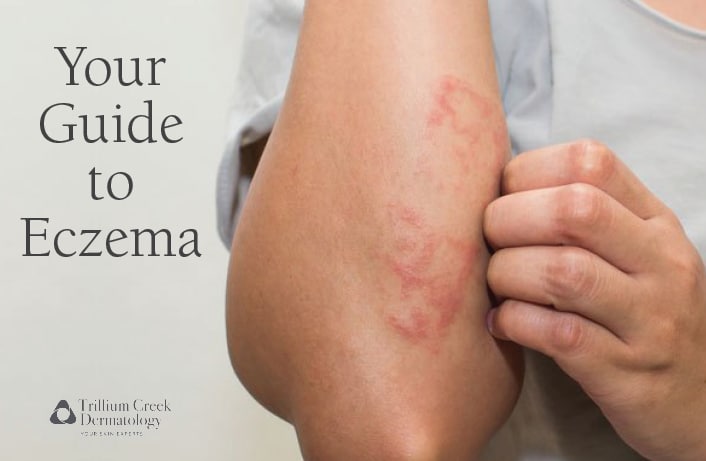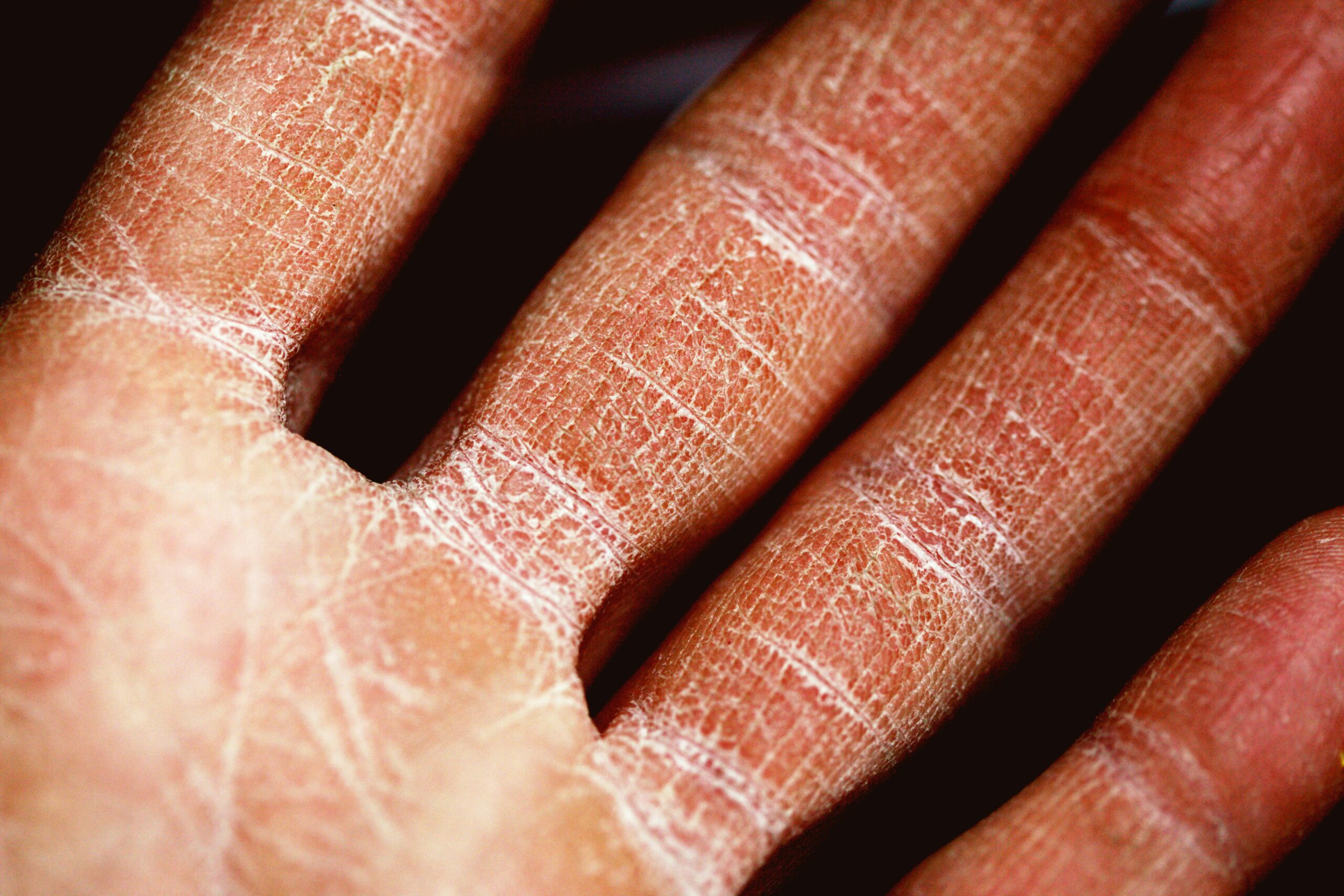Introduction
How Do I Know If I Have Eczema? Eczema is a common skin condition that affects millions of people worldwide. Characterized by inflammation, itching, and greenishness, it can significantly impact your quality of life. However, “ How do I know if I’ve eczema? ” this companion will help you understand the symptoms and types If you’re wondering.

What’s Eczema?
Eczema, or atopic dermatitis, is a habitual skin condition marked by dry, itchy, and inflamed skin. It frequently runs in families and is linked to other antipathetic conditions similar to asthma or hay fever. Though generally diagnosed in nonage, eczema can develop at any age.
Common Symptoms of Eczema
still, look out for these symptoms If you suspect you have eczema.
Sot, Scaled Skin patient blankness, frequently accompanied by short patches.
Itching violent itching that worsens at night or after scratching.
Red or Brownish Patches Generally set up on the face, neck, hands, bases, or inside crimps like elbows and knees.
Thickened Skin Habitual eczema can lead to areas of thickened, tough skin due to repeated scratching.
Oozing or encrusting In some cases, eczema causes pocks that blunder fluid or form crusts.
Different Types of Eczema
Eczema isn’t a one- size- fits- all condition. Understanding its type can give better clarity Atopic Dermatitis The most common form, is frequently associated with disinclinations and asthma.
Contact Dermatitis touched off by annoyances or allergens like detergents, cleansers, or shops.
Dyshidrotic Eczema is Characterized by small, itchy pocks on the hands and bases.
Nummular Eczema Circular, coin-shaped spots that are itchy and scaled.
Seborrheic Dermatitis is set up in unctuous areas like the crown, face, and upper casket, causing dandruff or short patches.
What Causes Eczema?
Eczema is caused by a combination of inheritable, environmental, and vulnerable system factors. Common triggers include annoyances detergents, soaps, and drawing products.

Allergens Pollen, dust diminutives, pet dander, or certain foods.
Weather Changes Extreme heat or cold waves can worsen symptoms.
Stress Emotional stress can complicate eczema flare-ups.
Clothing hair or synthetic fabrics may irritate sensitive skin.
How to Get a Proper Opinion
Still, consider this way If you suppose you might have eczema.
Self-Assessment Cover your symptoms over time. Keep track of possible triggers.
Consult a Dermatologist A specialist will examine your skin, ask about your medical history, and may conduct mislike or patch tests.
Rule Out Other Conditions Skin infections, psoriasis, or other conditions can mimic eczema. Professional evaluation is pivotal.
Managing and Treating Eczema
While there’s no cure for eczema, several treatments can help manage symptoms Moisturizers Use scent-free, thick creams or ointments to keep your skin doused.
Topical Steroids Reduce inflammation and itchiness. Use as specified by a croaker.
Specifics Antihistamines, immunosuppressants, or biologics may be necessary for severe cases.
life Changes Avoid known triggers.
Use gentle, scent-free detergents and cleansers.
Wear loose, permeable fabrics.
Natural Remedies Oatmeal cataracts, coconut oil painting, or aloe vera may soothe bothered skin.
When to Seek Help
still, patient, or significantly affecting your quality of life, If your symptoms are severe.
undressed eczema can lead to complications like infections or endless skin changes.
Living with Eczema Daily Challenges
Living with eczema frequently comes with unique challenges. patient itching can disrupt sleep, while visible skin flare-ups may affect tone- regard. numerous individuals with eczema find themselves avoiding social situations due to embarrassment or fear of judgment. Feting these challenges and addressing them head-on is vital. Emotional support from musketeers, family, or support groups can give consolation and a sense of community to those affected.
Eczema in Children and babies
Eczema constantly appears in babies and youthful children, frequently on the face, crown, and branches. Parents of children with eczema face the fresh challenge of managing their child’s discomfort and precluding inordinate scratching, which can lead to infections. Gentle skincare routines, hypoallergenic products, and close monitoring of triggers are essential. Pediatric dermatologists can also give acclimatized advice and treatment options to manage nonage eczema effectively.

The part of Diet in Managing Eczema
Diet can play a significant part in eczema operation for some people. While not everyone’s eczema is food-related, certain foods like dairy, eggs, or nuts may spark flare-ups in sensitive individualities. Keeping a food journal can help identify implicit allergens or annoyances. Incorporating anti-inflammatory foods similar to adipose fish, lush flora, and turmeric may also help reduce inflammation and promote healthier skin.
Eczema and Mental Health
The physical symptoms of eczema are frequently accompanied by emotional and cerebral impacts. Anxiety, depression, and stress can worsen eczema, creating a vicious cycle. Feting the link between skin health and internal well-being is pivotal. Relaxation ways similar to yoga, contemplation, or awareness practices can help reduce stress situations, perfecting both skin and overall health.
The Significance of Early Intervention
Catching eczema beforehand can help complications similar to infections, scarring, or habitual thickened skin. Ignoring mild symptoms can allow the condition to progress and become more delicate to manage. Regular check-ups with a dermatologist can ensure your skin remains healthy and flare-ups are minimized. They can also recommend the most advancements in treatment, from biologics to light remedies.
Exploration and Hope for the unborn
Advancements in eczema exploration give a stopgap for better treatments and, potentially, a cure. Scientists are exploring the inheritable and environmental factors contributing to eczema, while innovative curatives similar to biologics target the vulnerable system to reduce flare-ups. sharing in clinical trials or staying informed about new treatments can empower those with eczema to explore slice-edge options and recapture control over their skin health.
By understanding eczema and embracing effective operation strategies, individualities can lead fulfilling lives despite this condition. Knowledge and visionary care are important for achieving healthier skin and better well-being.

Conclusion
Eczema can be grueling, but fetching the signs and taking a visionary way can make a significant difference. However, consult a healthcare professional for an accurate opinion and acclimatized treatment plan, If you suppose you have eczema. With the right care, managing eczema and perfecting your skin health is entirely possible.
Read More:
FAQs
No, eczema can not be cured, but it can be effectively managed with proper skin care and treatment.
No, eczema isn’t contagious and can not spread from person to person.
Common triggers include allergens, stress, rainfall changes, and annoyances like detergents or fabrics.
Yes, certain foods may spark eczema in some individuals; keeping a food journal can help identify them.
Yes, especially if symptoms are severe, patient, or impacting your quality of life.

